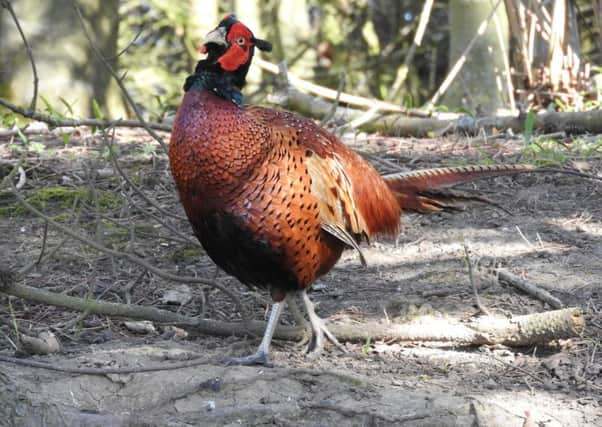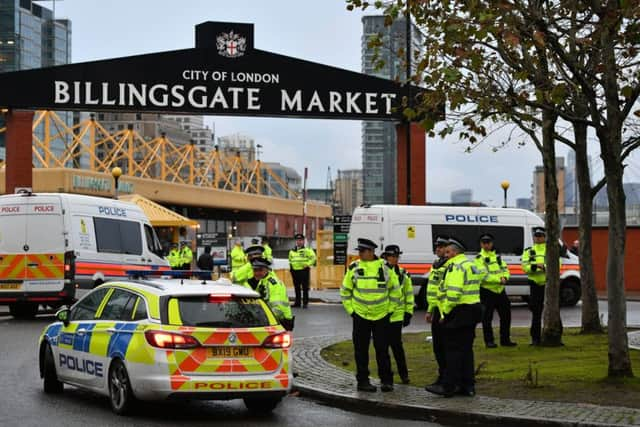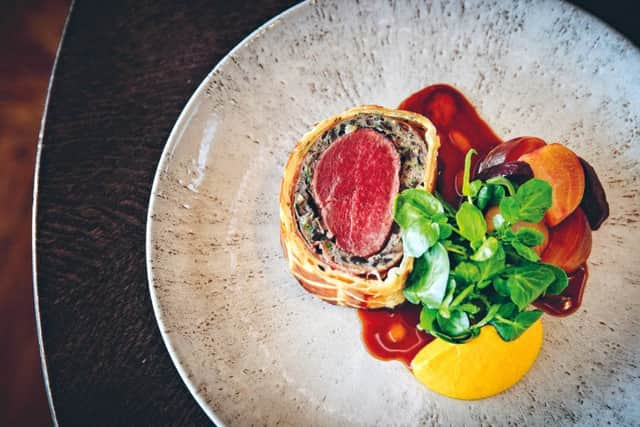Eating pheasant and other game is good for farmers and the environment as Animal Rebellion join climate change protest – Mo Metcalf-Fisher


Despite numbers being thin on the ground, those present were all united in the belief that meat was damaging the environment and should be wiped off the menu.
This view is both dangerously simplistic and wrong.
Animal Rebellion claim to care about the environment, yet they fail to tell us what would happen to the countryside we know and love if meat were to be banned.


Advertisement
Hide AdAdvertisement
Hide AdThe actions of Animal Rebellion and their associates, as well as recent bans on meat at Cambridge University and Goldsmiths in London, while grossly illogical, present us with an opportunity to defend meat, while contributing positively to the very important subject of climate change and the environment.
If you want to keep your carbon footprint down, buy grass-fed beef and lamb from local British producers. In the UK, we have the climate and the terrain to continue farming this sustainable meat and we owe it to our farmers who work round the clock to comply with the highest ethical environmental standards in the world.


Advertisement
Hide AdAdvertisement
Hide AdThe closer you can source your meat to home, the less mileage it clocks up getting from field to plate.
Which brings me to my main point.
There is another area of meat we collectively aren’t doing enough to shout about, despite it ticking all the right environmental boxes and that’s game.
Game – whether pheasant, partridge, woodpigeon, venison or rabbit – is a great versatile meat. It is healthy, tastes wonderful and is easy to cook. It’s often a lot cheaper, too, meaning it can reach a wide market audience.


Advertisement
Hide AdAdvertisement
Hide AdThe environmental benefits of sourcing game should be welcomed by those that want to do their bit for tackling climate change, all while eating sustainable meat.
Compare bringing a rabbit in from the field to put on the stove, to purchasing an avocado that’s been flown hundreds of miles to reach the supermarket. Yes, the avocado is vegan, but at what cost to carbon footprint? The rabbit wins the day.
The long-term benefits to our vast woodlands can also not be overlooked.
Deer, for example, destroy woodland habitat that could act as a carbon soak. We have an abundance of deer and the invasive muntjac that cause significant problems to the low-lying vegetation in woodland that supports ground-nesting birds, such as the now red-listed nightingale.
Advertisement
Hide AdAdvertisement
Hide AdBy managing these venison populations and putting their meat into the market, we are protecting our forests and wildlife, while providing a delicious, lean meal.
Game also provides those meat eaters that are prone to the ‘flexitarian’ approach with an exciting avenue to explore. According to the British Game Alliance, which was set up in 2018 to promote the value of feathered game, shot game is becoming more popular among these eaters as it is considered more ethical and contains a third of the fat and twice the protein of a roast chicken.
Admittedly, sourcing game for yourself isn’t for everyone. Thankfully, there are many people willing to provide it for you: that is go out, spend money and thus support local economies and then shoot game for you to buy from a game dealer, butcher or restaurant.
There are lots of options out there for sourcing game. The first place should always be your local butcher as are local game shoots and farmers’ markets. But if not, Tesco, Sainsbury’s and Waitrose all stock a variety of wild game during the season. But you may also find it in Budgens, Lidl and Booths. And if it isn’t available, be pro-active and ask your local store to kindly stock it.
Advertisement
Hide AdAdvertisement
Hide AdAt the Countryside Alliance, we have made this easier for you, with an interactive Game Dealer map.
Animal Rebellion and those set on bashing meat would do well to promote game as well as British-farmed livestock if they truly support a sustainable, inclusive, long term, positive future for our environment.
Mo Metcalf-Fisher is a spokesman for the Countryside Alliance.